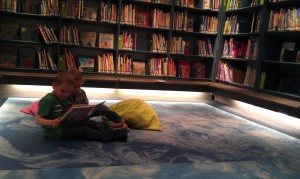A Not So Happy Ending

Right. I know I should have been doing homework all evening, but it was Tight Arse Tuesday at Village Cinemas and I’ve been dying to check out Gillian Flynn’s Gone Girl all month. I read the novel at the end of last summer, and I have to say I was quite disappointed. I’m not sure why, I think I expected something different, something more satisfying, a happy ending maybe? Gone Girl definitely didn’t leave me feeling happy, but rather erked.
I thought it was worth mentioning Gone Girl in this blog as I found its unconventional narrative somewhat in-line with discussions we’ve had about narratives this semester.
Narrative is something worth thinking about when considering the contemporary media environment, and the idea that conventional narratives found in traditional stories and films underpin many an expectation for life, is something that’s stuck with me this semester.
For me, Gone Girl is a new kind of story that forces us to reposition narrative, with the only alternative being to resist this process. Perhaps my initial resistance to unconventional narratives is what motivated my dislike of the story to begin with? Perhaps not, but something I’ve noticed about myself after this semester’s talk on narrative is that it’s okay to accept new and different structures. After all, this is the environment we’re living in.
If you haven’t seen Gone Girl I would highly reccommend it. You can see the trailer here. It’s a little freaky (and you’ll probably be thinking “WTF?” at the end), but its’ definitely a story made for the cinema.
As for happy endings… well that’s for you to decide.






